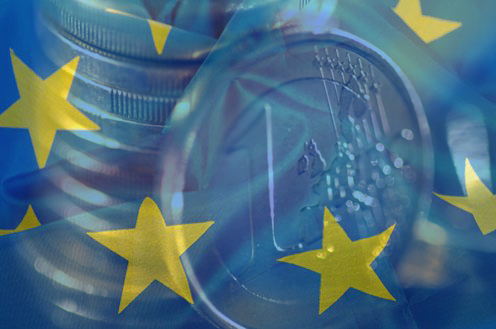Presentation of the Smart Growth Operational Programme 2014-2020
3.94 billion euros in support of Spanish SME research and innovation
News - 2015.3.26
Its geographic scope will cover the entire country, with a public and private contribution that is expected to deliver an investment of 6.7 billion euros in the coming years.
This Smart Growth OP forms part of the programmes using European Structural and Investment Funds that for Spain will represent aid worth 38 billion euros for the period 2014-2020, of which 19.4 billion euros correspond to European Regional Development Funds (ERDF). This is one of three Operational Programmes of a national scope that the State is to finance with ERDF, the other two being the Sustainable Growth Programme and the SME Initiative Programme.
The objective of this OP is to address factors that may help develop a smarter growth model in Spain. In terms of its geographic scope, the Programme covers Spain in its entirety, although it pays special attention to the most underdeveloped, outermost and transitional areas.
During the presentation, Fernández Currás explained that the sectoral scope of this OP is highly concentrated within three of the thematic objectives of the European Structural and Investment Funds that are directly linked to smart growth.
On the one hand, the so called Thematic Objective 1, designed to drive research, technological development and innovation, with a provision of 2.89 billion euros of ERDF aid. Thematic Objective 2 aims to enhance the use and quality of and access to information and communication technologies, with a total investment of 748 million euros. Finally, 269 million euros have been earmarked for Thematic Objective 3, designed to improve the competitiveness of SMEs.
Each of these Objectives involves a number of milestones, among which the Secretary of State highlighted those of achieving R&D investment equivalent to 2% of GDP, increasing the percentage of companies making technological innovations from the current 15% to 25%, fostering greater cooperation with public and private universities and research centres to enable this cooperation to grow from the present 18% to 41%, developing the digital economy, increasing the number of SMEs selling online from the current 14% to a little over 51%, and improving Internet connectivity of educational centres and their networks and infrastructures, thereby increasing the percentage of the national school population covered by public digital education services from 4.17 to 100%.
Fernández Currás -whose department is responsible for the management of European funds within the Ministry of Finance and Public Administrations - also explained that the Smart Growth Programme is the result of an intense negotiation process at a European and national level and stressed that now was the time to grasp the opportunity afforded by the funds, especially when Spain "has started to grow and create employment". In this respect, she recalled that in the last quarter of 2014 Spain grew at a rate of 2% and that economic recovery is driving job creation. She also pointed out that there had been a significant improvement in competitiveness, reflected in encouraging figures for the export of goods (up by 2.5%), which for the first time topped 240 billion euros, an all-time record in annual exports.
She also stressed that public accounts have been restructured, with a significant reduction of public deficit, thereby meeting the targets set within the European Union. "There is still a lot to do, but we have achieved some excellent results at a time when the Spanish economy was declining, which is even more noteworthy, since Spain had never reduced its deficit to such an extent during a recession". The State Secretary insisted that the purpose of fiscal consolidation was to ensure the financing and sustainability of essential public services of the welfare state, ensuring payment of pensions, unemployment benefits, education, health services, and other social services.
Finally, she explained that while the news on the revenue side in 2015 is fiscal reform, on the expenditure side it is the programme of measures to promote growth, competitiveness and efficiency (the CRECE Plan). This plan has been drawn up by the government to speed up the execution of European funds and maximise their application, through close cooperation and coordination with all the autonomous regions.
Also participating in the event, which was attended by representatives from the world of telecommunications, researchers, business people, SMEs, etc., were the State Secretary for Research, Development and Innovation, Carmen Vela, the State Secretary for Telecommunications and the Information Society, Víctor Calvo-Sotelo, the CEO of the Spanish Chamber of Commerce, Javier Carretero Manzano, and the Director of the European Commission's REGIO General Directorate, Charlina Vitcheva.





